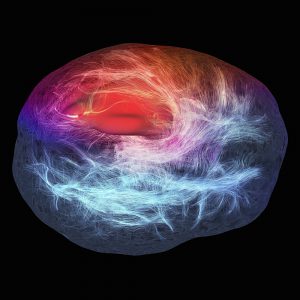Immunotherapy for Glioblastoma Well Tolerated, Survival Gains Observed

A phase 1 study of 11 patients with glioblastoma who received injections of an investigational dendritic cell vaccine that selectively targets a cytomegalovirus (CMV) protein in conjunction with an approved chemotherapy showed that the combination was well tolerated while also resulting in unexpectedly significant increases in survival. The study was published by Duke researchers on April 14, 2017, in Clinical Cancer Research.
Although the trial was small and designed to evaluate safety rather than efficacy, 4 of the 11 participants in the single-arm trial survived for more than 5 years after their initial diagnosis when treated with the combination of the dendritic cell vaccine therapy and a dose-intensified regimen of temozolomide, a first-line chemotherapy agent for glioblastoma. The outcome is uncommon for glioblastoma, which has a median survival rate of nearly 15 months when treated with the current standard of care.
The combination was also generally well tolerated, with no patients experiencing treatment-limiting adverse events or adverse events related to the cellular portion of the vaccine, although study participants experienced known adverse effects of temozolomide, including nausea, lymphopenia, thrombocytopenia, and fatigue. One study participant developed grade 3 vaccine-related allergic reaction to the granulocyte macrophage colony-stimulating factor (GM-CSF) component of the vaccine, but the participant was able to continue vaccinations with the GM-CSF removed and experienced no subsequent adverse events.
“This is a small study, but it’s one in a sequence of clinical trials we have conducted to explore the use of an immunotherapy that specifically targets a protein on glioblastoma tumors,” says the study’s lead author, Kristen Batich, MD, PhD. “While not a controlled efficacy study, the survival results were surprising, and they suggest the possibility that combining the vaccine with a more intense regimen of this chemotherapy promotes a strong, cooperative benefit.”
The Duke researchers built on previous findings to design the study. One earlier trial showed that a dendritic cell vaccine can prime T lymphocytes to target cells expressing CMV protein, which is abundant in glioblastoma tumors but absent from surrounding tissue. A separate clinical trial found that higher-than-standard doses of temozolomide combined with a peptide and GM-CSF adjuvant also primed the immune system and enhanced the response to a tumor-specific antigen.
For the current study, researchers used a combination of the dendritic cell vaccine and GM-CSF, which was administered as injections following dose-intensified regimens of temozolomide. The study patients received at least 6 vaccine treatments.
“Our strategy was to capitalize on the immune deficiency caused by the temozolomide regimen,” Batich says. “When the patient’s lymphocytes are depleted, it’s actually an optimal time to introduce the vaccine therapy. It basically gives the immune system marching orders to mount resources to specifically attack the tumor.”
The approach significantly slowed tumor progression in the study volunteers. Typically, glioblastomas begin to regrow at a median of 8 months following standard treatment; however, for the participants in this study, recurrence occurred at a median of 25 months.
“These are surprisingly promising clinical outcomes,” says the senior author, John Sampson, MD, PhD, chair of the Duke Department of Neurosurgery. “However, it is important to emphasize that this was a very small study that used historical comparisons rather than randomizing patients to 2 different treatments, but the findings certainly support further study of this approach in larger, controlled clinical trials.”
The research team has received approval to launch a new study that will compare the standard dose of temozolomide with the dose-intensified regimen in combination with the vaccine.